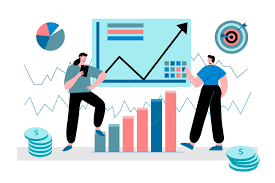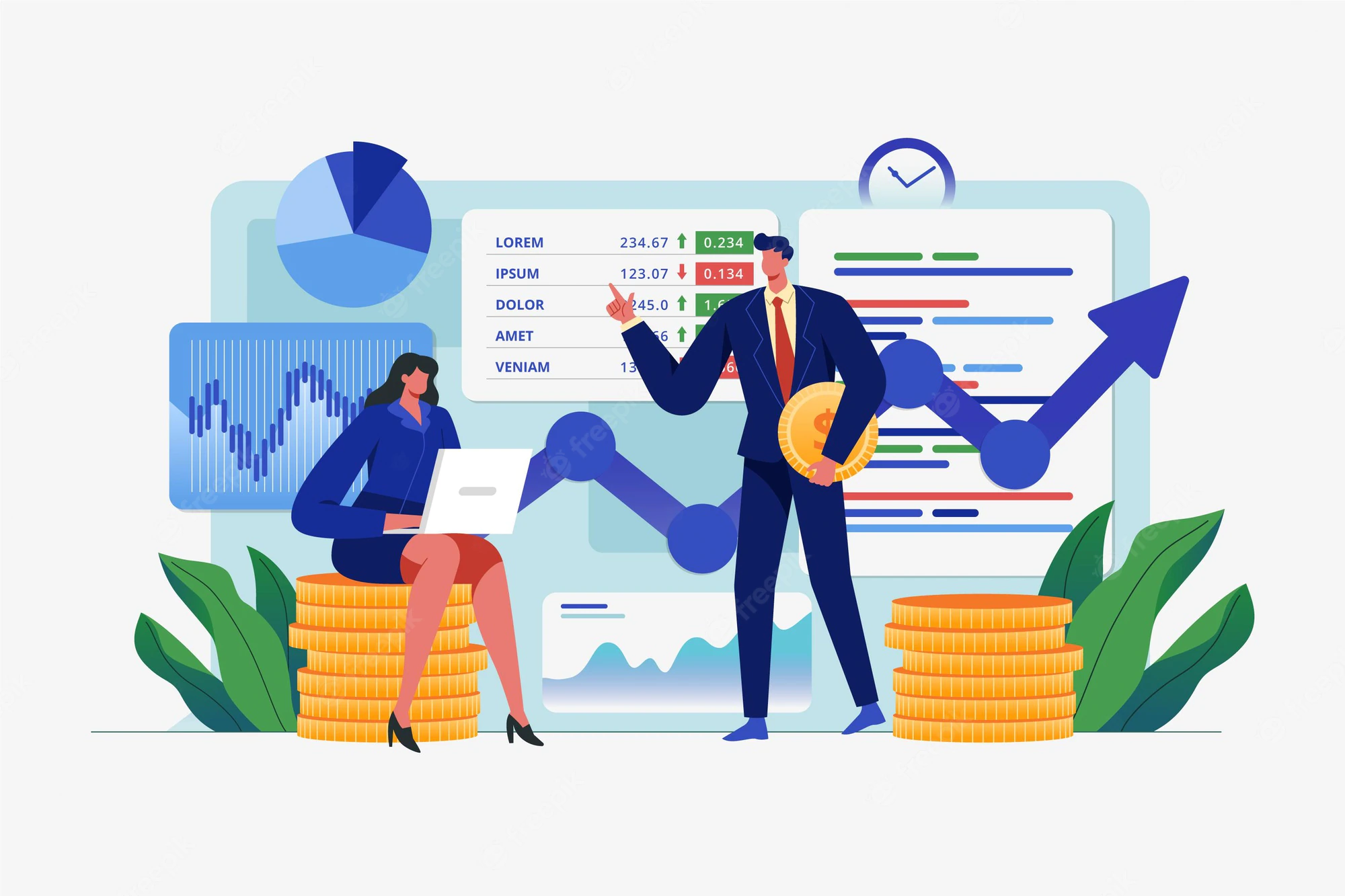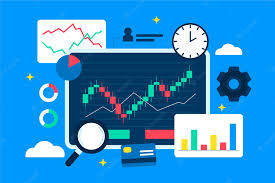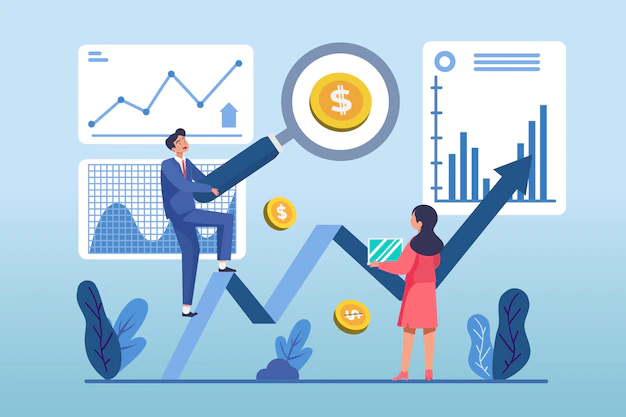In finance and investing, commodity trading holds a significant position. Commodities are tangible goods that can be bought and sold, such as gold, oil, wheat, or natural gas.
Engaging in commodity trading can be exciting for beginners looking to diversify their investment portfolio.
However, with various options available, it’s crucial to understand which commodity trading avenues are best suited for beginners. In this article, we will explore the top commodity trading options that offer an appropriate starting point for newcomers to this market.
The purchasing and selling of raw commodities, which are crucial to our day-to-day existence, is what the commodity trading industry is all about.
Supply and demand, global politics, the state of the economy, and the weather are just factors affecting commodity prices.
Novice investors must pick the appropriate commodities that align with their investment goals and risk tolerance.
Understanding the Commodity Trading Process
Commodities can be bought and sold in various ways, including futures contracts, exchange-traded funds (ETFs), or direct transactions. Depending on the individual’s preferences and the amount of skill they possess, each approach provides several benefits and potential drawbacks.
The Value of Initiating a Career in the Commodity Market for Novices
Trading in commodities may provide novices with various benefits, including the following:
The ability to diversify one’s investment portfolio beyond the standard stock and bond markets is available to novice investors who choose to invest in commodities.
Commodities frequently have a low connection with other asset classes, which lowers the portfolio’s total risk.
Hedging Against Inflation Certain commodities, such as precious metals like gold and silver, have traditionally been used as hedging instruments when investing against inflation.
During times of high inflation, maintaining the value of your assets may be facilitated by investing in certain commodities.
Potential for Profit: Because the prices of commodities are subject to considerable swings, it is possible to make a profit by trading in them. Traders skilled enough to utilise effective trading tactics might profit from the price swings that occur.
Leading Investment Opportunities in the Commodity Market for Novices
Precious Metals
Commodity traders place a significant value on holding precious metals such as gold, silver, platinum, and palladium in their portfolios. These metals have worth in and of themselves and are commonly seen as a refuge of stability during economic unpredictability.
Beginners have access to various trading platforms, such as online brokers and commodities exchanges, via which they may engage in precious metals trading.
Primary Sources of Energy
Commodities relating to energy, such as crude oil and natural gas, are essential to the functioning of the international economy. Various factors impact them, including supply and demand dynamics, international politics, and the weather.
Trading energy futures contracts or investing in energy-related exchange-traded funds are two ways newcomers enter the energy commodities market.
Agricultural Commodities
Among the many products that fall under the category of agricultural commodities are wheat, corn, soybeans, coffee, and sugar. To successfully trade agricultural commodities, one must know weather patterns, crop reports, and worldwide trends in supply and demand.
Futures contracts and exchange-traded funds (ETFs) concentrating on agriculture offer opportunities for novice traders to participate in agricultural commodities trading.
Cryptocurrencies
In recent years, cryptographic currencies have seen a substantial surge in popularity. Trading and investing options exist in relation to digital currencies such as Bitcoin and Ethereum, among others. However, it is essential to keep in mind that cryptocurrencies are subject to extreme price swings; as a result, newcomers to this market should proceed with extreme care and perform an in-depth study before investing.
Exchange-Traded Funds (ETFs)
ETFs, or exchange-traded funds, are a type of investment vehicle that trades on stock markets and offers investors exposure to a diversified portfolio of commodities.
Thanks to these exchange-traded funds, beginners can participate in commodities without actively changing futures contracts, which provides diversification and flexibility.
Beginners have access to a wide variety of exchange-traded funds (ETFs) that are focused on commodities, which they may pick from based on their interests and level of risk tolerance.
Contracts for Future Delivery of Commodities
A commodity futures contract involves an agreement to purchase or sell a certain quantity of a commodity at a set price and date in the future. Trading futures requires a more in-depth grasp of the market’s mechanics and the ability to handle possible risks effectively.
Before beginning to trade futures, novices should get the essential information and consider honing their skills on practice platforms that simulate real-world trading environments.
Considerations to Make Before Trading for the First Time
Before getting their feet wet in the world of commodities trading, novices should give some thought to the following factors:
5.1 Risk Tolerance
Consider your comfort with risk and ensure your expectations are reasonable. The prices of commodities are notoriously unpredictable and may move around quite a bit. Consider your long-term financial objectives and the level of risk you are willing to assume in pursuit of those objectives.
In-Depth Research and Analysis of the Market
Conduct an in-depth study of the commodities market and maintain a high awareness of the variables that affect commodity pricing. To discover future possibilities for trading, you need to develop a trading strategy based on technical and fundamental analysis.
Method of Business Strategy
Develop a clear-cut trading plan that corresponds to the level of risk you are comfortable with. Determine your entry and exit points, position size, and risk management tactics. Maintain your commitment to your approach and steer clear of making rash choices because of the noise in the market.
The Selection of Brokers
Find a trustworthy broker with a good reputation who can provide you with access to the commodities markets you’re most interested in. Think about things like the trading costs, customer service, the features of the platform, and the educational materials available.
Risk Management Techniques
Establishing stop-loss orders and diversifying your portfolio are two examples of effective risk management strategies that should be used. These precautions can help safeguard your investment and reduce the likelihood of incurring damages.
Conclusion
For novices, the trading of commodities may be an endeavor that is both fascinating and lucrative. Beginners may traverse this market with confidence if they gain awareness of the many commodity alternatives that are accessible and take into consideration aspects such as risk tolerance, market research results, trading strategy, broker selection, and risk management.
Remember that you should constantly educate yourself, be current on market developments, and adjust your methods as necessary.
How much capital do I need to start commodity trading as a beginner?
The capital required to start commodity trading can vary based on the commodities you choose and the trading platform. It’s advisable to start with an amount you can afford to lose and gradually increase your investment as you gain experience.
Are commodities riskier than other investment options?
Commodities can be more volatile compared to traditional investment options like stocks and bonds. However, with proper risk management and market research, it is possible to minimize risks and increase the chances of profitable trades.
Can I trade commodities without physically owning them?
Yes, you can trade commodities without physically owning them. Trading platforms and exchanges offer derivative products like futures contracts and ETFs that provide exposure to commodity price movements.





